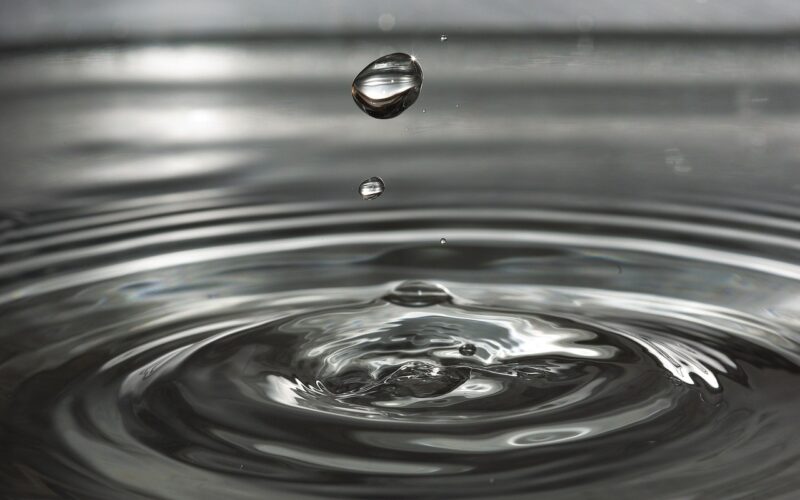Reusing Wastewater
In recent years, there has been a growing trend towards incorporating eco-friendly features in new property developments.
One such feature is a grey water system, which collects and filters wastewater from sinks, showers, and other sources for reuse in irrigation, flushing toilets, and other non-potable purposes. Incorporating grey water systems in new builds offers several benefits.
Firstly, it reduces the demand on freshwater resources, making it an eco-friendly and sustainable option.
Secondly, it can help to reduce water bills and save money in the long run.
Thirdly, it can increase property value by making the home more energy-efficient and eco-friendly.
Overall, incorporating grey water systems in new builds is a smart and forward-thinking move that benefits both the environment and property owners.
Why should new builds have grey water systems?
Grey water systems are a simple yet innovative solution to help conserve water in the home.
This sustainable approach involves capturing and reusing wastewater from sinks, showers, and washing machines. Instead of letting water go to waste down the drain, it is directed to an appropriate system where it can be filtered and treated for use in non-potable applications such as flushing toilets or watering plants.
By implementing grey water systems in new builds, homeowners can shrink their water footprint and save money on utility bills.
Additionally, these systems can help reduce the strain on municipal water supplies, which in turn benefits the environment.
Not only is it an environmentally responsible choice, but it's also a smart investment for any new homeowner looking to promote sustainability in their home.
Step by step process for filtration
A grey water system is a fantastic way to save water and reduce your ecological footprint.
These systems collect and treat household wastewater from sources such as sinks, showers and laundry, and then recycle it for non-potable uses such as watering plants, flushing toilets, or washing cars.
The filtration process is a key component in the operation of a grey water system. The water is first collected in a tank and then transported through a series of filters that remove impurities and pollutants.
The filtered water is then stored in another tank where it can be reused. Properly maintained, a grey water system can provide high-quality water for non-drinking applications, reducing our reliance on drinking water sources.
By using grey water, we can make a significant contribution to conservation and help to protect our planet.
Benefits of installing grey water systems
Installing grey water systems in new builds can be a game-changer in terms of both environmental impact and financial benefits.
Grey water is wastewater that originates from sources such as the shower, bathtub, and washing machine. Instead of letting the water go down the drain and into the sewer system, grey water can be reused for purposes such as flushing toilets, watering plants, and even washing dishes.
By diverting grey water, homeowners can reduce their water consumption by up to 50%, which not only saves money on utility bills but also reduces the strain on local water supplies.
Moreover, incorporating grey water systems into new builds can add value to properties and attract eco-conscious buyers who prioritize sustainable living.
In short, implementing grey water systems can provide a multitude of benefits, both for the environment and for homeowners' wallets.
Types of water filtration
When it comes to grey water systems, choosing the right water filtration media is crucial to ensuring efficient and effective filtration.
There are a variety of media options available, including silica sand and recycled glass. Silica sand is a popular choice due to its affordability and ability to remove impurities at a microscopic level.
Recycled glass, on the other hand, is environmentally-friendly and offers excellent filtration capabilities. When selecting a water filtration media, it is important to work with a reliable silica sand supplier who can advise on the best option for your specific needs.
With the right filtration media in place, grey water systems can make a significant difference in water conservation and reducing water expenses.
Filtered water uses
As we all become more concerned about the environment and our ecological footprint, finding ways to re-use resources has become increasingly important.
Fortunately, filtered grey water is an excellent resource that can be safely and effectively re-used for a variety of purposes. Some of the most commonly used applications for filtered grey water include watering plants and lawns, flushing toilets, and even washing clothes. By using filtered grey water, we can reduce our water consumption and help conserve this precious resource for generations to come.
So next time you use the filtered grey water from your system, know that you are making a positive contribution to the environment.
Helping the environment
Building a new house is an exciting time for any homeowner, but with the rise of environmentalism, many people want to ensure their homes have as little impact on the planet as possible.
One way to achieve this is by implementing a grey water system in the design of the house. This system collects water from sources such as sinks, showers, and washing machines, then purifies and repurposes it for non-potable uses like garden irrigation and toilet flushing.
Grey water systems not only reduce water usage, but can also help prevent overloading sewage systems and provide water during droughts.
With proper planning and installation, grey water systems can be an effective way to make new builds more environmentally friendly.








